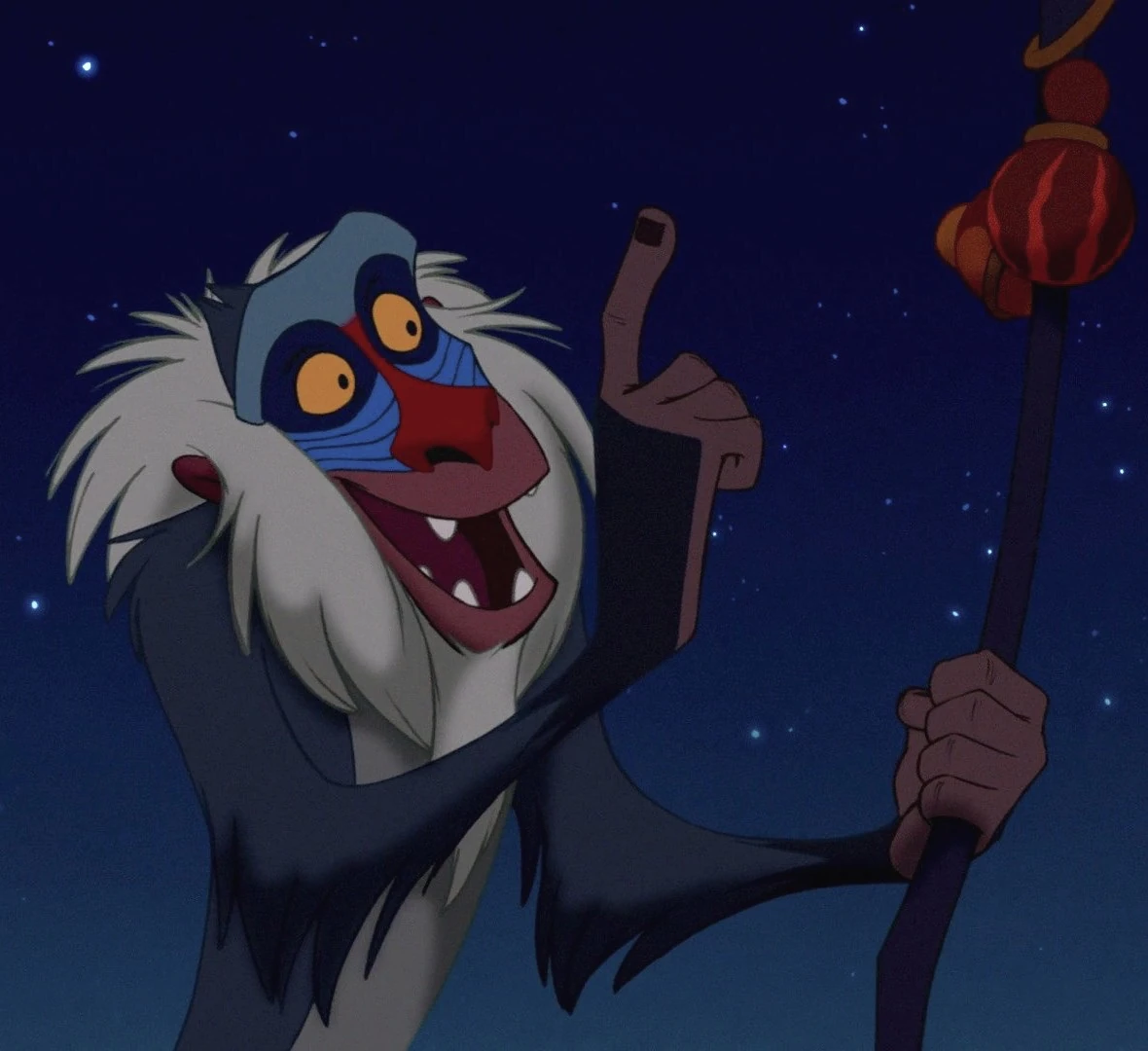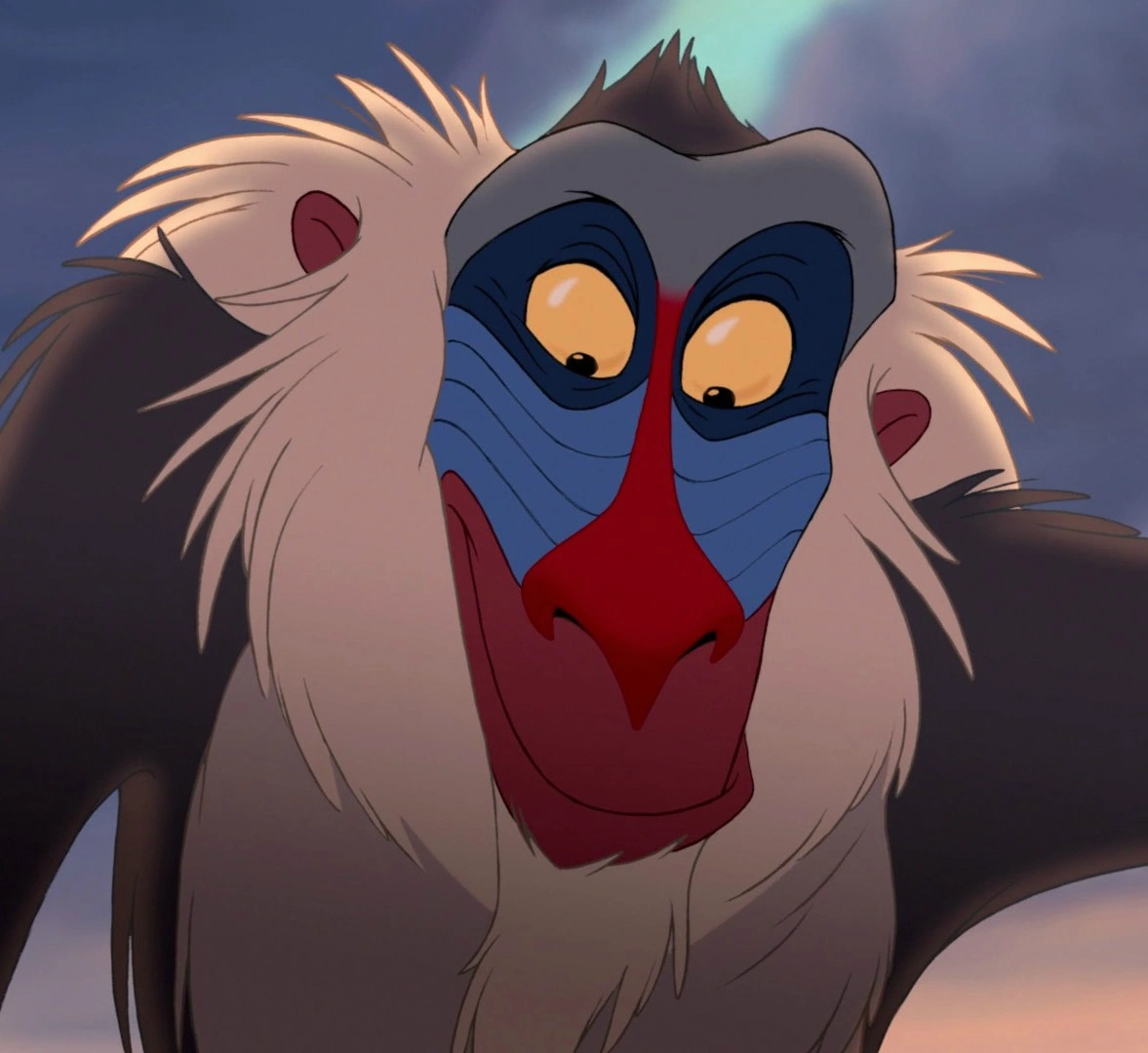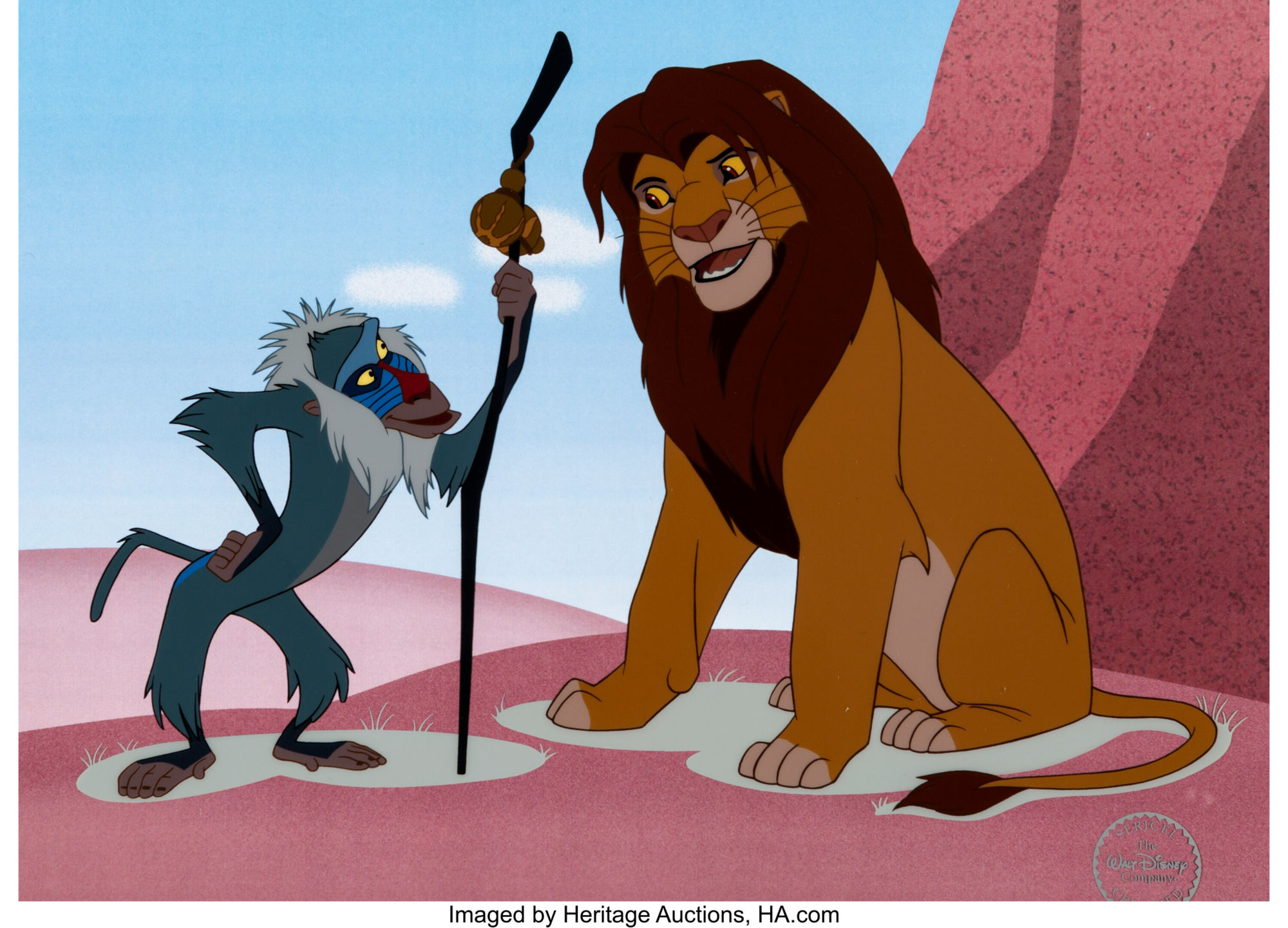What Is Rafiki? Discover The Meaning, Origin, And Pop Culture Impact
Alright folks, let's dive right into this. You’ve probably heard the name Rafiki being thrown around in conversations, movies, or even as someone’s username online. But what is Rafiki exactly? At its core, Rafiki is more than just a name—it’s a symbol of wisdom, guidance, and friendship. Whether you're a fan of Disney's The Lion King or exploring African cultures, understanding Rafiki can open up a world of meaning.
Now, before we get too deep into it, let me paint you a picture. Imagine a wise old mandrill with a long stick, swinging around like he owns the place, and dropping life lessons left and right. That’s Rafiki for you. But there’s so much more to the story than just the cartoon character we all know and love. Stick with me, because we’re about to unravel the layers of what Rafiki truly represents.
Let’s not forget that Rafiki isn’t just a fictional character; it’s also a word with roots in Swahili culture. In this article, we’ll explore the meaning, cultural significance, and how Rafiki has become a global phenomenon. So buckle up, because we’re going on a journey that will take us from the savannas of Africa to the big screen and beyond.
Read also:Jefferson White The Rising Star In The Music Industry Whos Taking The World By Storm
Origins of Rafiki: Where It All Began
What Does Rafiki Mean in Swahili?
So here’s the deal: Rafiki means "friend" in Swahili. Simple, right? But don’t let the simplicity fool you. In many African cultures, friendship is more than just hanging out or sharing a laugh—it’s about loyalty, trust, and support. Rafiki embodies these values, which is why it resonates so deeply with people.
Swahili is a widely spoken language in East Africa, and its words often carry deep cultural meanings. When you call someone your Rafiki, you’re not just saying they’re a buddy—you’re saying they’re someone you can rely on through thick and thin. It’s a beautiful concept that transcends language barriers.
The Cultural Significance of Rafiki
Now, let’s talk about why Rafiki holds such importance in African culture. In many communities, friendships are seen as sacred bonds that help individuals navigate life’s challenges. Rafiki represents the idea that no one should face the world alone. It’s about having a support system, someone who’ll be there when things get tough.
Think about it: in a world where life can be unpredictable, having a Rafiki by your side can make all the difference. This cultural value is something that resonates universally, which is why it’s been embraced by so many people around the globe.
Rafiki in The Lion King: More Than Just a Character
Who is Rafiki in The Lion King?
Alright, let’s talk about the big one. If you’re a fan of The Lion King, you already know Rafiki. He’s that quirky mandrill who acts as a mentor to Simba. But Rafiki isn’t just a side character; he’s the heart and soul of the story. From his famous “Hakuna Matata” mantra to his profound wisdom, Rafiki teaches important life lessons about responsibility, self-discovery, and the circle of life.
Here’s a quick breakdown of Rafiki’s role in the movie:
Read also:Jack Cooper Facinelli The Rising Star Whos Making Waves In Hollywood
- He’s the spiritual guide who helps Simba understand his destiny.
- He uses humor and wit to deliver serious messages, making him relatable to both kids and adults.
- His iconic line, “You must go back to the Pride Lands,” is a reminder that sometimes we have to face our fears and take responsibility for our actions.
Why Rafiki Resonates with Audiences
What makes Rafiki so memorable? It’s not just his funny accent or his antics with that stick. It’s the way he connects with audiences on an emotional level. Whether you’re a kid learning about bravery or an adult reflecting on life’s challenges, Rafiki’s wisdom speaks to everyone.
Plus, let’s be real—Rafiki’s got personality. He’s not afraid to call out Simba when he needs to, but he’s also there to lift him up when he’s feeling down. That balance of tough love and compassion is something we can all relate to.
Rafiki Beyond The Lion King: Pop Culture Phenomenon
Rafiki in Other Media
Believe it or not, Rafiki’s influence extends far beyond The Lion King. He’s appeared in various spin-offs, video games, and even stage productions. In fact, Rafiki plays a crucial role in the Broadway adaptation of The Lion King, where his energetic performances have become a highlight of the show.
But it’s not just about appearances. Rafiki’s character has inspired countless creators to explore themes of mentorship and self-discovery in their own work. He’s become a symbol of guidance in pop culture, proving that his message is timeless.
Rafiki in Social Media and Internet Culture
These days, Rafiki’s everywhere. From memes to TikTok videos, people are using his iconic moments to express themselves and connect with others. Whether it’s his “look closer” scene or his hilarious reactions, Rafiki’s moments have become part of internet folklore.
And let’s not forget the fan art. Artists all over the world have reimagined Rafiki in countless ways, from modern interpretations to whimsical designs. It’s a testament to how much he’s loved by fans of all ages.
The Symbolism of Rafiki: Wisdom and Guidance
Rafiki as a Symbol of Wisdom
At its core, Rafiki represents wisdom. He’s the one who sees the bigger picture, even when others are lost in the chaos of the moment. His ability to guide Simba through his journey is a powerful reminder of the importance of mentorship in our own lives.
Think about the mentors in your life. They might not have a stick or a funny accent, but they’ve probably given you advice that’s stuck with you. That’s the power of Rafiki—he reminds us to seek wisdom and guidance when we need it most.
Rafiki as a Symbol of Guidance
Guidance is another key aspect of Rafiki’s character. He doesn’t just tell Simba what to do—he helps him find his own path. This approach is something we can all learn from. Whether you’re a parent, teacher, or friend, sometimes the best way to help someone is to point them in the right direction and let them figure it out for themselves.
Rafiki’s guidance isn’t just about telling people what to do; it’s about helping them discover their own strength and potential. And that’s a lesson we can all benefit from.
Rafiki in Modern Times: Relevance and Impact
Why Rafiki Still Matters Today
In a world that’s constantly changing, Rafiki’s message remains relevant. Whether you’re dealing with personal challenges or trying to make sense of the world around you, Rafiki’s wisdom can offer guidance and perspective.
Take a moment to think about your own life. Are you facing a tough decision? Feeling lost or unsure about the future? Rafiki’s lessons about responsibility, self-discovery, and the circle of life can help you navigate these challenges with confidence.
Rafiki’s Impact on Mental Health Awareness
Interestingly, Rafiki’s message has also been embraced by mental health advocates. His emphasis on self-reflection and inner strength resonates with many who are struggling with anxiety, depression, or other mental health issues. By encouraging people to “look closer” and embrace their true selves, Rafiki offers a powerful message of hope and healing.
So whether you’re using Rafiki’s wisdom to inspire others or to help yourself, remember that his lessons are just as important today as they were when The Lion King first hit theaters.
Rafiki’s Influence on Global Culture
Rafiki and African Representation in Media
Rafiki’s character has played a significant role in bringing African culture to a global audience. By incorporating Swahili language, African folklore, and traditional themes, The Lion King has helped introduce millions of people to the rich cultural heritage of Africa.
But Rafiki’s influence goes beyond representation. He’s become a symbol of African wisdom and values, reminding us of the importance of community, friendship, and respect for nature. These are lessons that resonate universally, which is why Rafiki’s character has been embraced by people all over the world.
Rafiki’s Legacy in Storytelling
Finally, let’s talk about Rafiki’s legacy in storytelling. His character has inspired countless creators to explore themes of mentorship, self-discovery, and the human experience. Whether you’re writing a novel, creating a film, or even just sharing a story with a friend, Rafiki’s example shows us the power of storytelling to connect people and inspire change.
So the next time you’re crafting a story, think about how you can incorporate Rafiki’s wisdom into your work. Whether it’s through a wise mentor, a powerful message, or a heartfelt moment of guidance, Rafiki’s legacy lives on in the stories we tell.
Conclusion: What is Rafiki and Why Should You Care?
Alright, let’s wrap this up. So, what is Rafiki? He’s more than just a character or a word—he’s a symbol of wisdom, friendship, and guidance. Whether you’re exploring African culture, enjoying The Lion King, or simply looking for inspiration in your own life, Rafiki’s message has something to offer everyone.
Here’s the takeaway: we all need a Rafiki in our lives. Someone who’ll guide us, support us, and help us find our way when we’re feeling lost. So take a moment to reflect on the mentors and friends in your life, and remember to pay it forward by being someone else’s Rafiki when they need it most.
And hey, if you’ve enjoyed this article, don’t forget to share it with your friends! Let’s spread the word about Rafiki and the lessons he has to teach us. Who knows—maybe you’ll inspire someone else to embrace their inner Rafiki today.
Table of Contents:
- Origins of Rafiki: Where It All Began
- What Does Rafiki Mean in Swahili?
- The Cultural Significance of Rafiki
- Rafiki in The Lion King: More Than Just a Character
- Who is Rafiki in The Lion King?
- Why Rafiki Resonates with Audiences
- Rafiki Beyond The Lion King: Pop Culture Phenomenon
- Rafiki in Other Media
- Rafiki in Social Media and Internet Culture
- The Symbolism of Rafiki: Wisdom and Guidance
- Rafiki as a Symbol of Wisdom
- Rafiki as a Symbol of Guidance
- Rafiki in Modern Times: Relevance and Impact
- Why Rafiki Still Matters Today
- Rafiki’s Impact on Mental Health Awareness
- Rafiki’s Influence on Global Culture
- Rafiki and African Representation in Media
- Rafiki’s Legacy in Storytelling
- Conclusion: What is Rafiki and Why Should You Care?
Article Recommendations


